Wondering if protein can protein make you lose weight? The answer is yes. Protein boosts your metabolism, keeps you feeling full longer, and helps preserve muscle while losing fat. In this guide, we’ll explore how much protein you need, the best sources, and any potential risks. Let’s dive in!
Key Takeaways
- Protein enhances satiety, boosts metabolism, and preserves lean muscle mass, all essential for effective weight loss.
- Calculating protein needs varies by individual factors; generally, 10% to 35% of total caloric intake should come from protein.
- While protein supplements provide convenience, whole food sources of protein are crucial for optimal nutrition and health.
The Role of Protein in Weight Loss
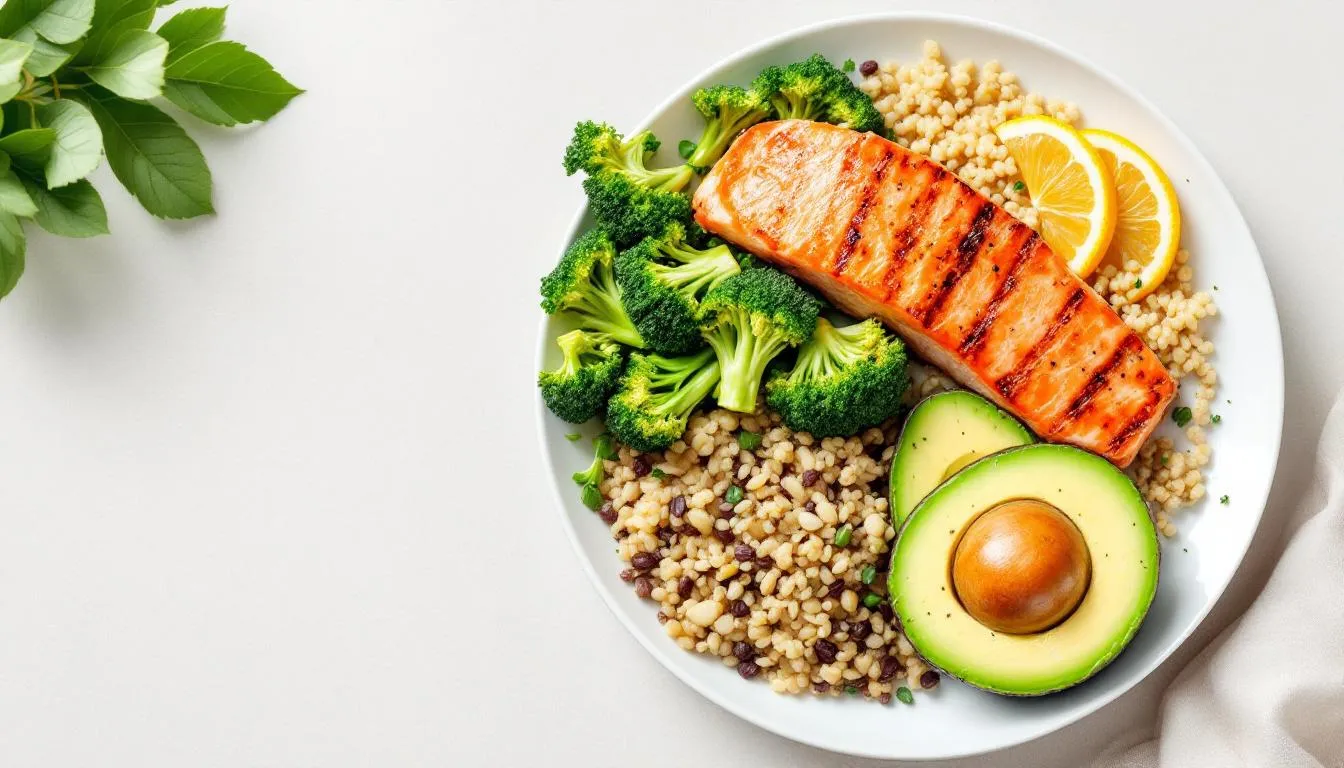
Protein is a powerhouse key nutrient that plays a crucial role in weight loss. It helps to enhance feelings of fullness, boost metabolism, and preserve lean muscle mass, which is built from amino acid.
These mechanisms collectively support your weight loss journey.
Enhancing Satiety
One of the most significant benefits of eating protein is its ability to enhance satiety. When you include a variety of protein-rich foods in your diet, such as:
- Fish
- Poultry
- Eggs
- Legumes
- Seeds You can significantly increase feelings of fullness. This means you’re less likely to overeat or snack on unhealthy foods, which can help you lose weight more effectively. For example, legumes like lentils and black beans not only provide high protein but also offer fiber, which further promotes satiety.
Moreover, consuming adequate protein can prevent weight regain by maintaining muscle mass and keeping you full longer. Incorporating these protein-rich foods into your meals helps create a satisfying and nutritious weight loss diet.
Boosting Metabolism
Protein has a unique ability to boost your metabolism through a process known as the thermic effect of food. This means that your body burns more calories digesting protein compared to fats and carbohydrates. As a result, a high protein diet can increase your resting energy expenditure, meaning you continue to burn more calories even at rest.
Increased protein consumption not only boosts the thermic effect of food but also enhances resting energy expenditure, leading to a greater overall calorie burn. This makes protein an essential component of any weight loss diet, helping you to lose weight more efficiently and maintain a healthy weight.
Preserving Lean Muscle Mass
One of the challenges of losing weight is ensuring that you lose fat while preserving muscle mass. Adequate protein intake is crucial for maintaining muscle tissue during calorie deficits, helping to prevent muscle loss. This is important because muscle mass plays a vital role in metabolic health and overall energy metabolism and expenditure.
Higher protein intake is linked to enhanced muscle preservation, which is essential for maintaining weight loss over time. By consuming enough protein, you can support your body’s lean muscle mass, ensuring that your weight loss efforts result in a healthier and more efficient metabolism.
How Much Protein Should You Consume?
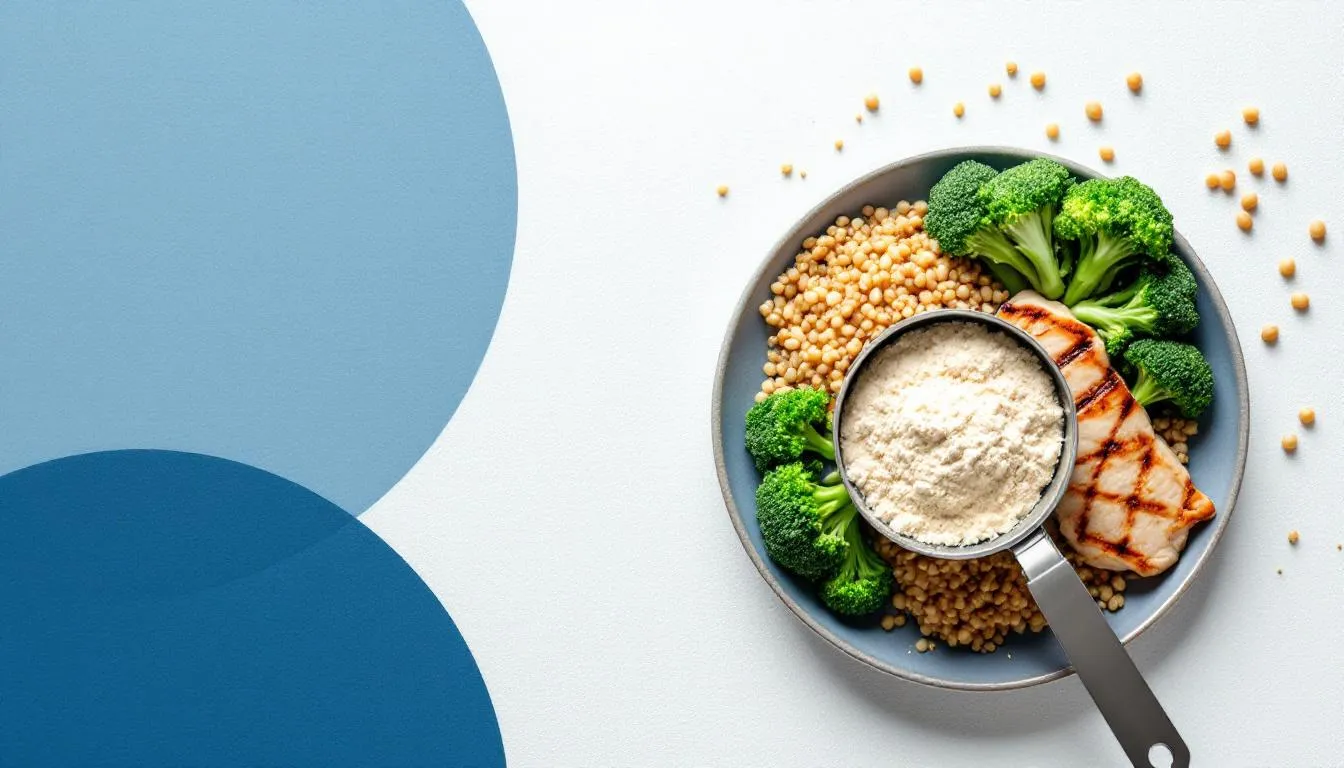
Determining the right amount of protein to consume can be a bit tricky, as it varies based on individual factors. However, understanding how to calculate your protein needs and knowing the recommended daily allowance can help you make informed decisions.
Calculating Your Protein Needs
Tools like the USDA DRI Calculator can help determine your specific protein requirements by accounting for age, sex, weight, and activity level. For example, a common method for calculating protein needs is multiplying your body weight in pounds by 0.36 to find the grams of protein required daily.
Individuals over 40 should consume around 1-1.2 grams of protein per kilogram of body weight to maintain muscle mass. Generally, aiming for 50 to 175 grams of protein daily, based on a 2,000-calorie diet, serves as a good guideline.
Recommended Daily Allowance
The recommended daily allowance for protein is to derive 10% to 35% of your total daily calories intake from protein. For average adults, this translates to about 0.8 grams of protein per kilogram of body weight to avoid deficiency.
For those who exercise regularly, the requirement may increase to about 1.1 to 1.5 grams per kilogram of body weight.
Healthy Sources of Protein for Weight Loss
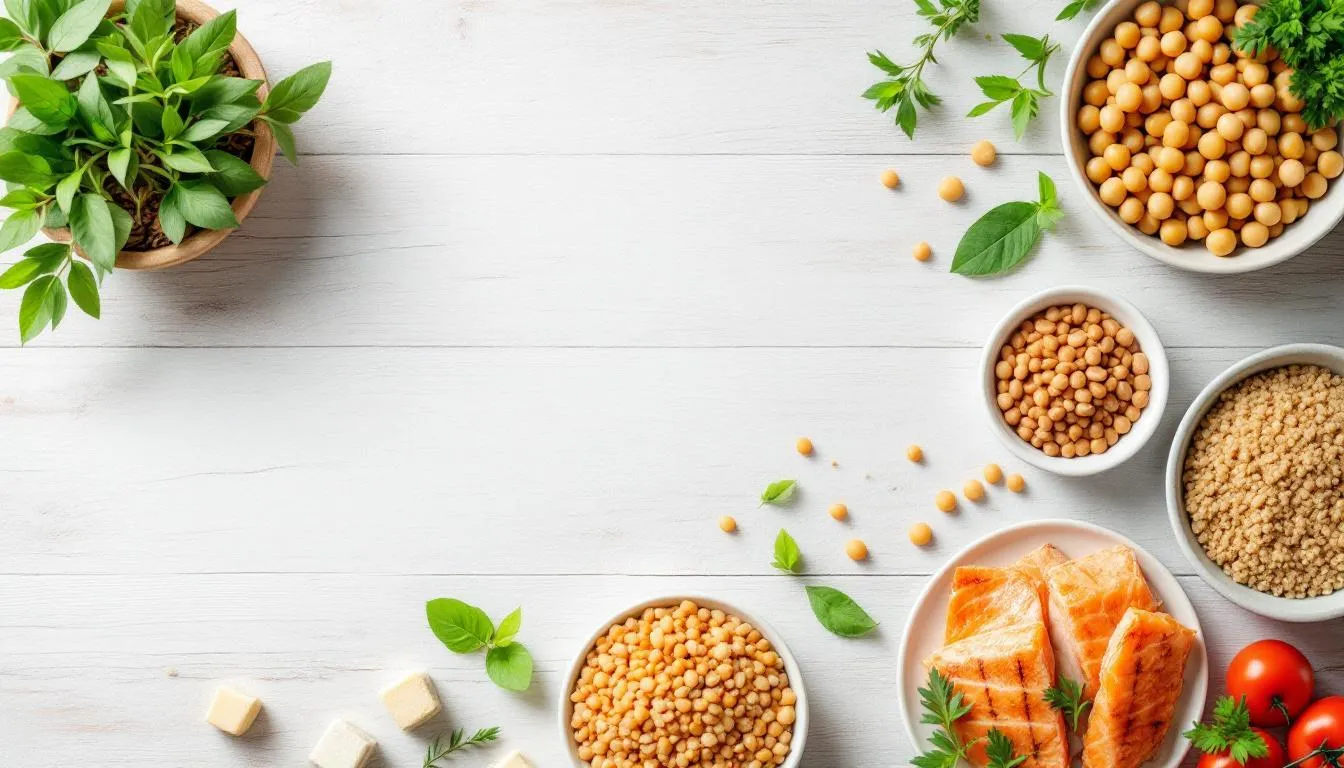
Incorporating a variety of protein sources and other foods into your diet is essential to ensure you receive all the necessary nutrients while supporting your weight loss goals and adding extra protein to your food intake, considering the macronutrient composition of egg whites.
Let’s explore the best animal-based and plant-based proteins, as well as the role of protein supplements.
Animal-Based Proteins
Animal-based proteins are easily absorbed by the body and provide a rich source of essential nutrients, including those found in foods high in animal based foods. Examples of lean meats suitable for a high-protein diet include the carnivore diet:
- Skinless chicken
- Skinless turkey
- Lean cuts of beef
- Pork
These options can support satiety, boost metabolism, and help maintain lean muscle mass, making them excellent choices for weight loss.
Incorporating lean meats and lean beef into your diet can help you meet your protein needs without the extra calories and harmful fats found in processed meats. Additionally, low-fat dairy products like Greek yogurt and cottage cheese can be excellent sources of protein while keeping your fat intake in check.
Plant-Based Proteins
For those following a vegetarian or vegan diet, plant-based proteins are essential. Legumes such as lentils and chickpeas serve as excellent protein sources, providing additional fiber and minerals. Quinoa is another fantastic option, as it is a complete protein containing all essential amino acids needed by the body.
Nuts and seeds, like almonds and chia seeds, are also great plant-based protein sources that contribute to weight loss without the added calories of animal fats. By incorporating these foods into your diet, you can enjoy a high-protein diet that is both nutritious and effective for weight loss.
Using Protein Supplements
Protein supplements offer convenience, especially for those with busy lifestyles. They can help individuals quickly increase their protein intake without much preparation, making adding protein through protein powder an effective option.
However, it’s important to remember that while protein supplements can complement a balanced diet, they should not replace whole food sources of protein. While protein supplements can be beneficial in moderation, whole foods should always be prioritized for optimal nutrition.
Potential Risks of High Protein Diets
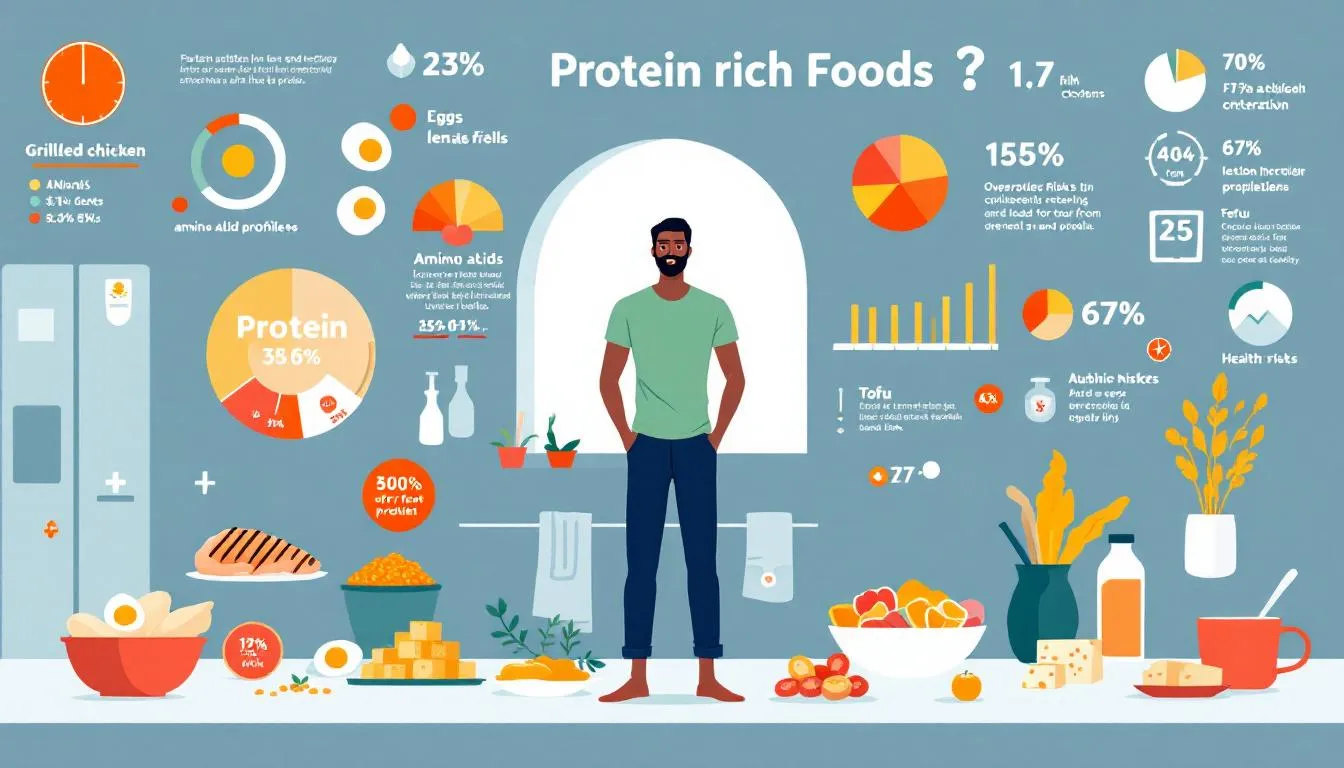
While high-protein diets can offer numerous benefits, it’s essential to be aware of the potential risks. High protein consumption can pose health risks, particularly concerning kidney and bone health.
Kidney Health
Research indicates that high protein intake might be linked to an increased risk of chronic kidney disease, especially in those with pre-existing conditions. Excessive protein intake can lead to kidney hyperfiltration, increasing the risk of glomerular injury. Individuals, especially those with existing kidney issues, should monitor their protein intake and maintain a balanced diet.
While healthy people might not face significant risks from a high-protein diet, consulting a healthcare provider before making any drastic dietary changes is wise.
Bone Health
Some studies suggest that high-protein diets may lead to increased calcium excretion, raising concerns about bone health over the long term. High protein consumption can cause a rise in urinary calcium excretion, which might contribute to lower bone density and potentially lead to bone loss.
While the clinical evidence is mixed, it’s essential to balance protein intake with other nutrients to ensure overall health and well-being through a systematic review.
Long-Term Benefits and Considerations
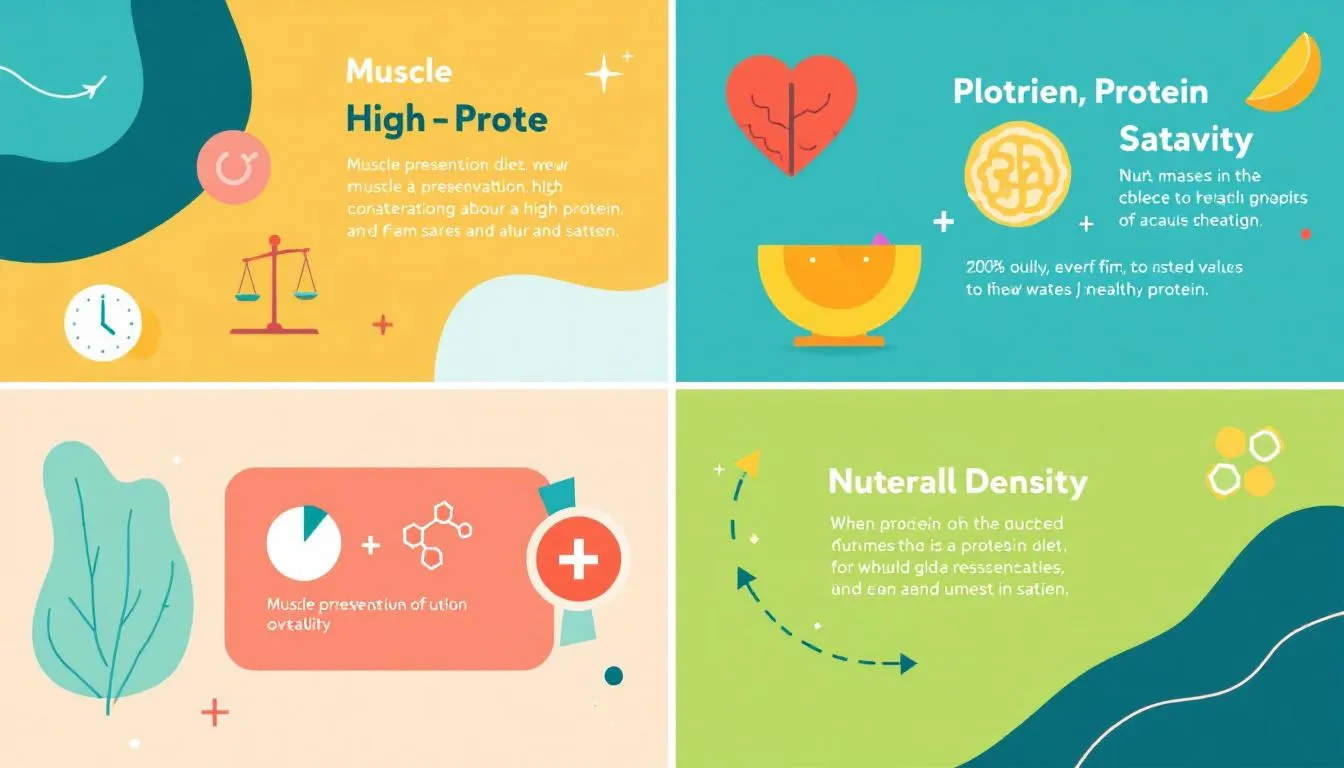
Despite the potential benefits, high-protein diets can offer substantial long term risks health benefits. These include improved weight management and enhanced metabolic health.
Weight Maintenance
Adherence to a higher-protein diet contributes significantly to sustained weight loss maintenance. A consistent high-protein dietary pattern supports weight loss during dieting phases and helps maintain weight loss over the long term.
Including adequate protein in your meals as part of a healthy diet can reduce the likelihood of weight regain, fostering better long-term weight management.
Impact on Overall Health
Incorporating more protein into your diet can lead to a range of significant health benefits, including improved body composition and metabolic health. Higher protein intake is associated with a reduced risk of developing metabolic syndrome, a cluster of conditions that increase the risk of heart disease and diabetes.
Studies suggest that diets rich in protein can lower blood pressure and improve cholesterol levels, leading to better cardiovascular health.
Summary
Protein is a powerful ally in the journey to weight loss and overall health. By enhancing satiety, boosting metabolism, and preserving lean muscle mass, protein can help you achieve and maintain a healthy weight. Ensuring you consume the right amount of protein from various sources, while being mindful of potential risks, can make a significant difference in your weight loss journey.
Incorporating protein into your diet is not just about losing weight; it’s about fostering a healthier lifestyle. By understanding how protein works and making informed dietary choices, you can harness its power to support your long-term health and wellness goals.
Frequently Asked Questions
How does protein help with weight loss?
Protein aids weight loss by enhancing satiety, boosting metabolic rate, and helping preserve lean muscle mass. Incorporating sufficient protein in your diet can effectively support your weight management goals.
How much protein should I consume daily for weight loss?
To lose weight effectively, aim for 10% to 35% of your total daily calories from protein, which is approximately 0.8 grams of protein per kilogram of body weight. This balanced approach will support your weight loss efforts while maintaining muscle mass.
What are some healthy sources of protein for weight loss?
Incorporating lean meats, fish, beans, lentils, nuts, and low-fat dairy products into your diet can effectively support weight loss while providing essential protein. These sources are nutrient-dense and promote satiety, making them excellent choices.
Are there any risks associated with high-protein diets?
Yes, high-protein diets can increase the risk of kidney issues and affect bone health due to kidney hyperfiltration and elevated calcium excretion. It’s important to monitor your intake and consult with a healthcare professional if you’re considering such a diet.
What are the long-term benefits of a high-protein diet?
A high-protein diet can lead to improved weight management, enhanced metabolic health, and a reduced risk of metabolic syndrome over the long term. Embracing this dietary approach can significantly benefit your overall health.
